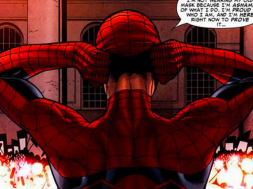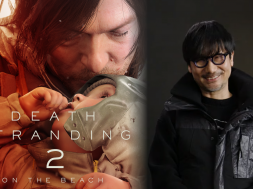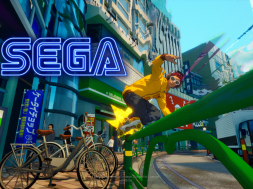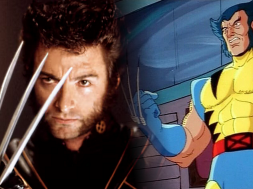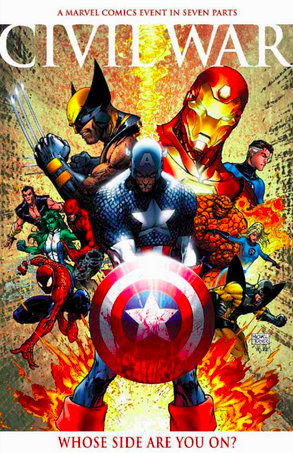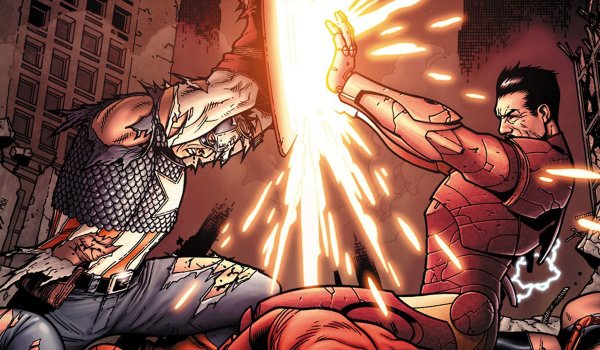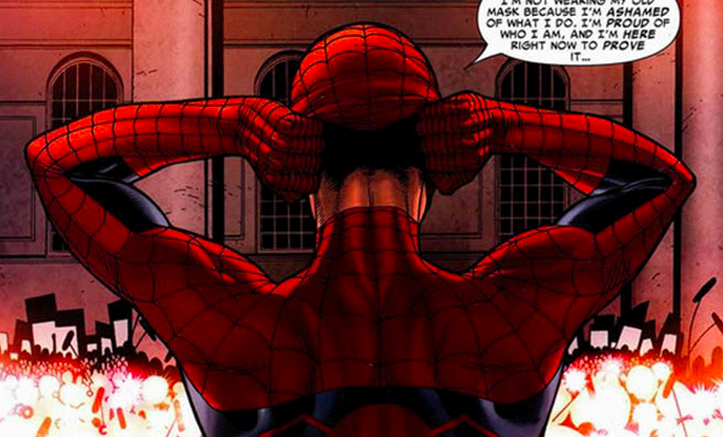
ReRead: Civil War
Writing for The Arcade can sometimes make for an odd task. It’s not that I don’t like the job; far from it. However, I can never shake the nagging feeling that I am yet to earn my nerd stripes, as it were. Fortunately, this platform was founded on principles of inclusion and, in contrast, the elitism that blights some celebrants of geek culture. Were it otherwise, I would in all likelihood be ill-suited to this (or indeed any other) task before me.
Prior to writing for The Arcade I had some background knowledge of the Marvel Universe. So many nerd tropes have entered the mainstream that it is impossible not to have an inkling of the (infinitely) larger blot. Over the last year, though, I decided to look into the areas that I was less familiar with. Comic books were the obvious jumping off point, and so I began making my way through some of the works that might loosely be called classics. Civil War is the one that I want to discuss below.
[SPOILER ALERT]
Written by Mark Millar and Steve McNiven, Civil War tells of the attempt to federalise superheroes that comprise the Marvel Universe. The move toward registering mutants, meta-humans and men and women in masks comes in the wake of a disaster. A group of caped crusaders take on a team of super villains in Stamford, Connecticut as part of a reality television show. The collateral damage is extensive. Uniting under the banner Stamford Reformists, families of the bereaved begin to push for change in the practices of super heroes. Led by Miriam Sharpe, the reformists want crime fighters to become government employees with a view to making them better trained and more accountable.
At a church service held in the wake of the catastrophe at Stamford, Tony Stark/ Iron Man is accosted by Sharpe. Sharpe’s son was killed in the explosion caused by the super villain Nitro. She blames Stark for his death, reasoning that his cavalier attitude created a culture of reckless behavior among the masked men and women who task themselves with protecting the world and the human race. Stark is moved by her altercation and attempts to bring her case to the super community at large.
However, while one Avenger is swayed, the first Avenger is most certainly not. Steve Rogers/ Captain America is convinced that the move will undermine the unity of super humans generally. For his lack of co-operation, Cap is branded an enemy of the State and with that becomes a beacon for the masked men and women who want to operate without state interference. Stark decides to push ahead with the bill to enforce superhuman registration, collaborating with fellow heroes and geniuses Hank Pym/ Yellow Jacket and Reed Richards/ Mr Fantastic to bring the renegade heroes to heel. The political push creates a rift in the superhero community, with the characters Iron Man and Captain America as the figureheads of the differing camps. Hence the title, Civil War.
Now there is no few number of things to love about Civil War as a graphic novel, not least the illustrations. Steve McNiven draws in a style that could easily be described as cinematic. In light of the recent Marvel films Captain America: The Winter Soldier (2014) and Avengers: Age of Ultron (2015), the action sequences look remarkably like story boards for a forthcoming movie. Also, with Agent Maria Hill as acting head of shield, I cannot help being curious as to how actress Cobie Smulders would approach a similar character arc.
It does a similarly good job when it comes to the matter of the female characters more generally. Although there are two men fronting the drama, the women have roles that are compelling and well-rounded. Hill is the equal of any man (super or 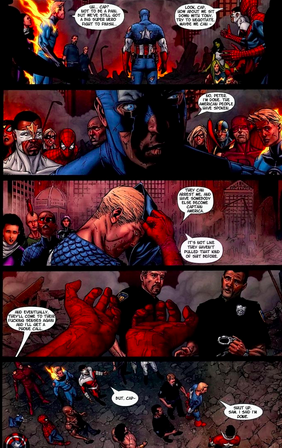 not) and, while infuriating, does not sink to the level of pantomime baddie. Sharpe is also a force to be reckoned with. A bereaved mother, her cause is just, if only in so far as it is well motivated. However, with such well coached dialogue, it is impossible to shake the impression that her actions are more insidious than the seemingly benevolent images conjured up by the term ‘motherhood’. There were times while reading that called to mind a line from the introduction of Who Are We – And Why Should It Matter in the 21st Century? by Gary Younge: “bearing children is a biological act, not an ideological position.”
not) and, while infuriating, does not sink to the level of pantomime baddie. Sharpe is also a force to be reckoned with. A bereaved mother, her cause is just, if only in so far as it is well motivated. However, with such well coached dialogue, it is impossible to shake the impression that her actions are more insidious than the seemingly benevolent images conjured up by the term ‘motherhood’. There were times while reading that called to mind a line from the introduction of Who Are We – And Why Should It Matter in the 21st Century? by Gary Younge: “bearing children is a biological act, not an ideological position.”
The major pull, however, is that Civil War is about ideas. Ideas of security and freedom, and their antagonism. In an age of increased military spending and wide-spread superstitions about specific groups, communities and the citizenry at large, Civil War shows the perils of privileging values over one another. The perils of putting accountability before anonymity or safety before liberty and vice versa. These are the kind of issues that are explored and, crucially, without being patronising.
What did you make of Civil War? Did you lean more towards Stark and security? Or in the direction of Cap and freedom? And, most importantly, what classic graphic novel/ comic book should we tackle next? Tell us in the comments!
